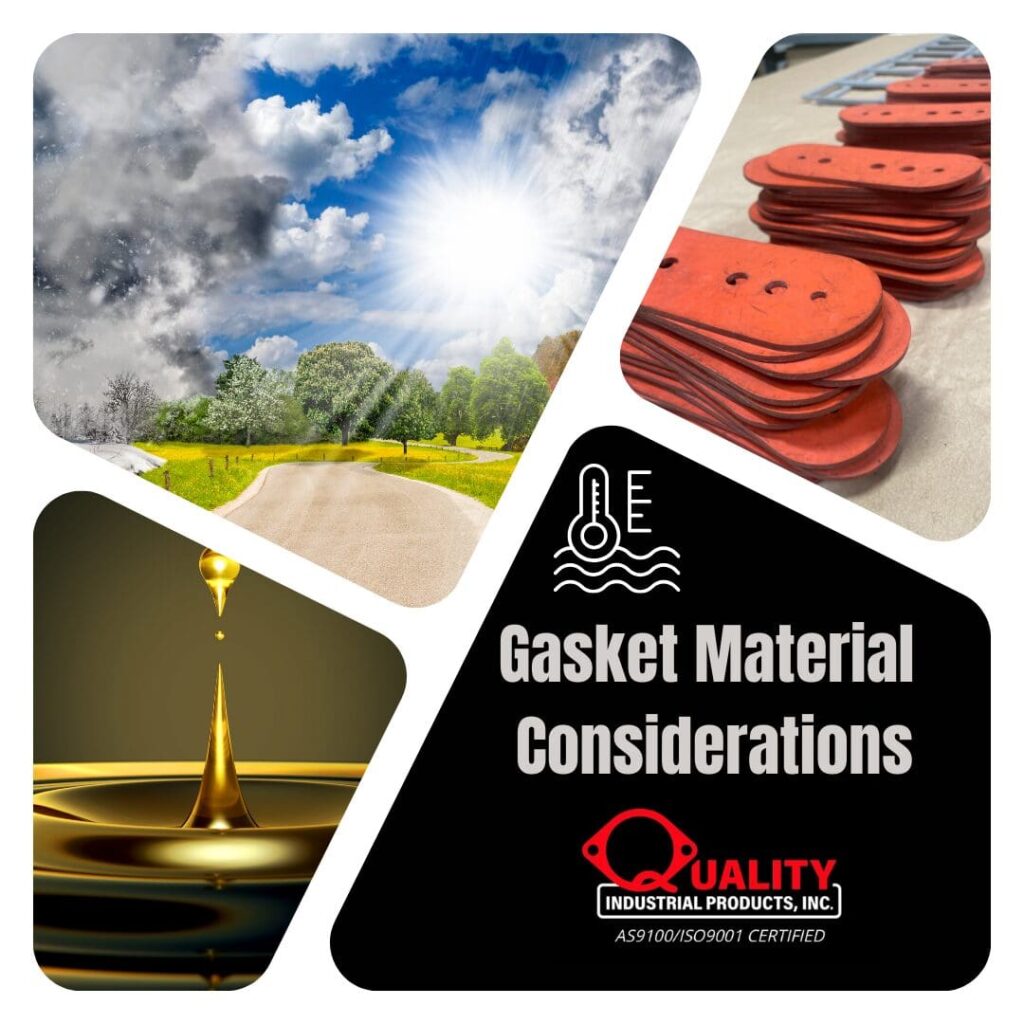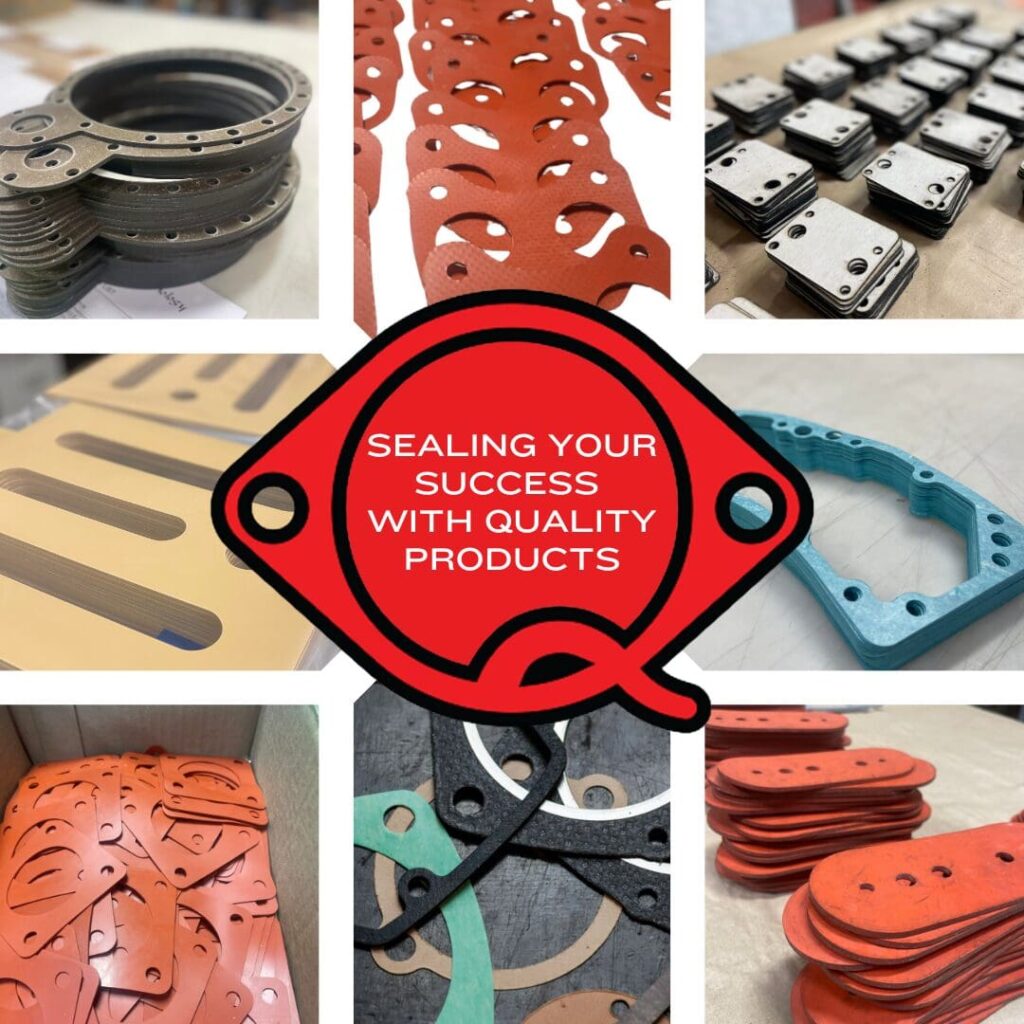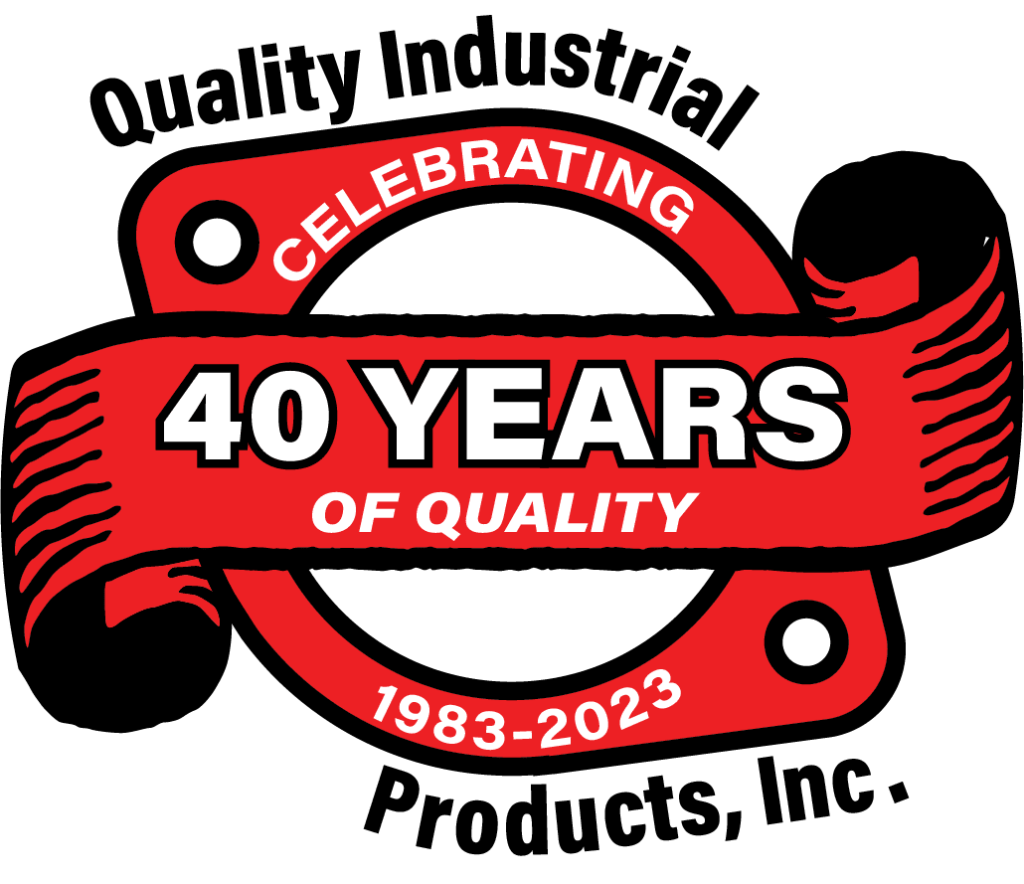Gasket Material Considerations: A Comprehensive Guide

When it comes to creating a reliable seal, selecting the right gasket material is crucial. Gaskets are used in a variety of applications, from automotive engines to industrial piping systems, and the material you choose will directly impact the performance and longevity of your seal. In this blog post, we will explore key considerations in selecting gasket materials, focusing on outdoor exposure, temperature, compressibility, chemical resistance, tensile strength, and the type of liquid the gasket will be sealing. Outdoor Exposure If your gasket will be exposed to the elements, it is essential to select a material that can withstand UV radiation, moisture, and temperature fluctuations. Materials such as EPDM (ethylene propylene diene monomer) and silicone are excellent choices for outdoor applications. EPDM is highly resistant to UV rays, ozone, and weathering, making it ideal for outdoor uses. Silicone, on the other hand, maintains its properties over a wide temperature range and is also resistant to UV radiation. Temperature Temperature is a critical factor in gasket material selection. The gasket must be able to withstand the operating temperature of the application without degrading. For high-temperature applications, materials like graphite, PTFE (polytetrafluoroethylene), and silicone are recommended. Graphite can handle temperatures up to 500°C (932°F) and is often used in steam and high-temperature fluid systems. PTFE is another excellent choice, with a high melting point and resistance to thermal expansion. For lower temperature applications, materials like neoprene and nitrile rubber are commonly used. Compressibility Compressibility refers to the ability of the gasket material to deform under pressure and create a tight seal. This property is crucial for applications where the surfaces being sealed are uneven or have imperfections. Materials like cork, rubber, and foam have high compressibility and can conform to irregular surfaces, ensuring a tight seal. However, it is important to balance compressibility with the material’s ability to return to its original shape to maintain the seal over time. Chemical Resistance If the gasket will be exposed to chemicals, it is vital to choose a material that can resist chemical degradation. For instance, Viton (fluoroelastomer) and PTFE are known for their excellent chemical resistance. Viton is particularly resistant to fuels, oils, and solvents, making it ideal for automotive and aerospace applications. PTFE, also known as Teflon, is highly resistant to most chemicals and is often used in chemical processing industries. Always refer to chemical compatibility charts when selecting gasket materials for specific chemical exposures. Tensile Strength Tensile strength is the maximum stress a material can withstand while being stretched or pulled before breaking. This property is particularly important for gaskets exposed to high pressure or mechanical stress. Materials such as metal-reinforced graphite and aramid fiber gaskets offer high tensile strength and are suitable for demanding industrial applications. Metal-reinforced gaskets, in particular, provide excellent strength and durability while maintaining good sealing properties. Type of Liquid Being Sealed The type of liquid the gasket will be sealing plays a significant role in material selection. For instance, if the gasket will be sealing water, materials like EPDM and neoprene are suitable due to their water resistance. For oils and fuels, nitrile rubber and Viton are preferred choices. In applications involving food and pharmaceuticals, materials like silicone and PTFE are favored due to their non-reactive and non-toxic properties. Conclusion Selecting the right gasket material requires careful consideration of several factors, including outdoor exposure, temperature, compressibility, chemical resistance, tensile strength, and the type of liquid being sealed. By understanding these considerations, you can ensure that your gasket will provide a reliable and long-lasting seal, regardless of the application. Always consult with material experts and refer to compatibility charts to make informed decisions and achieve optimal performance. If you have any questions or need further assistance in choosing the right gasket material for your specific application, feel free to reach out to us. We are here to help you make the best choice for your sealing needs.
Sealing Your Success: 6-Advantages of Custom Manufacturing Gaskets for Various Industries

Gaskets are essential components in a wide range of industries, serving as seals to prevent leaks and ensure the proper functioning of machinery and equipment. While standard gaskets and seals are readily available, custom manufacturing offers a host of advantages for businesses looking to optimize performance, efficiency, and reliability in their operations. In this blog post, we will explore the benefits of custom manufacturing gaskets for various industries and highlight how tailored solutions can deliver superior results. 1. Precision Fit: One of the key advantages of custom manufacturing gaskets is the ability to create precision-fit solutions that perfectly match the specifications of each application. By designing gaskets to exact dimensions and tolerances, manufacturers can ensure a tight seal, minimizing the risk of leaks and improving overall performance. 2. Enhanced Performance: Custom gaskets can be tailored to meet the specific requirements of different industries, including high temperatures, pressures, and chemical exposures. By selecting the right materials and manufacturing techniques, custom gaskets can deliver superior performance and durability, even in the most demanding environments. 3. Cost Savings: While custom manufacturing may require an initial investment, the long-term cost savings can be significant. Custom gaskets and seals are designed to last longer, reduce downtime, and minimize maintenance costs, ultimately leading to improved efficiency and productivity in the long run. 4. Versatility: Custom manufacturing allows for flexibility in design and material selection, enabling gaskets to be adapted for a wide range of applications across various industries. From automotive and aerospace to food and beverage and pharmaceuticals, custom gaskets can be customized to meet the unique needs of each sector. 5. Innovation and Customization: Custom manufacturing offers opportunities for innovation and customization, allowing businesses to stay ahead of the competition and meet evolving industry requirements. By working closely with manufacturers to develop custom solutions, businesses can drive product development and achieve a competitive edge. 6. Quality Assurance: Custom gaskets undergo rigorous testing and quality control measures to ensure they meet the highest standards of performance and reliability. Manufacturers can provide certifications and documentation to guarantee the quality and integrity of custom gaskets, giving customers peace of mind and confidence in their operations. In conclusion, the advantages of custom manufacturing gaskets for various industries are clear. From precision fit and enhanced performance to cost savings and versatility, custom gaskets offer a host of benefits that can improve efficiency, reliability, and competitiveness for businesses across different sectors. Here at Quality Industrial Products, Inc, you can partner with an experienced, AS9100/ISO9001 certified manufacturer and unlock the full potential of custom sealing solutions. Contact us today!
Quality Times Fall 2023 Edition // Latest News and Updates!

Sept. – Nov. 2023 QUALITY TIMES Fall 2023 Edition Featured Employee Josh Blanton, Production Manager Quality Industrial Products, Inc. Hey Josh! You’ve worked at QIP for almost 20 years! What’s one professional achievement you are especially proud of? Josh – One professional achievement I’m proud of was when I was promoted from Press Operator to Production Manager. What is the best part about working at Quality Industrial Products, Inc.? Josh – The people are the best part! It feels like working with family! What would you say are your greatest strengths you bring to the QIP team? Josh – Hardwork and Dedication. What are a few of your hobbies, and activities you enjoy outside of work? Josh – Hiking in the cooler months, taking my dog on walks and car rides, woodworking projects, and spending time with loved ones and family. Pictured: One of Josh’s SPOOK-tacular Halloween woodworking projects! BOOO-tiful craftsmanship, Josh! WHAT’S NEW? It’s a Brand New Vu! Team QIP recently added a MicroVu Excel 511 (optical comparator) to their QA machinery and equipment line-up. This highly advanced machine is used in the manufacturing industry to measure the dimensions and contours of different parts and components. An optical comparator machine works by projecting an image of the part being inspected onto a screen, which is then compared to a template or standard to determine any deviations or discrepancies in the part’s dimensions and contours. Overall, the addition of the MicroVu Excel 511 shows Team QIP’s commitment to continuous improvement which aligns perfectly with their culture of quality. Have a question or comment? Please do not hesitate to contact our team! CLICK HERE! VISIT US ONLINE AT: WWW.QUALITY-INDUSTRIAL.COM
